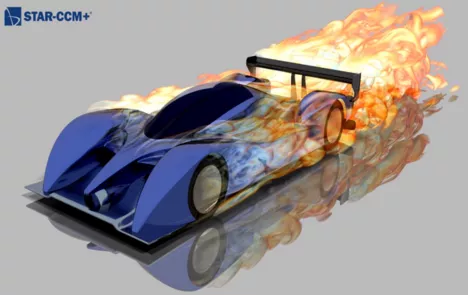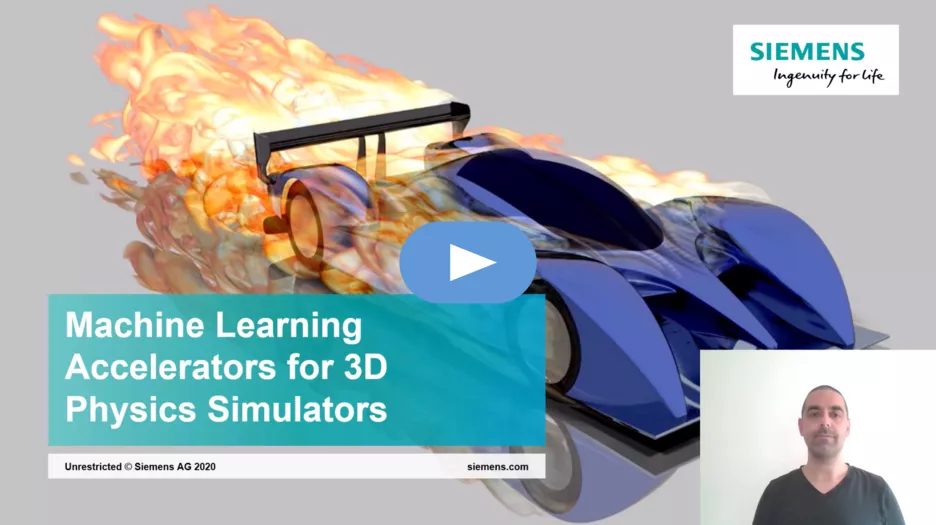Machine Learning-based Accelerators for 3D Physics Simulators
This project took place in winter term 2020, you CAN NOT apply to this project anymore!
Results of this project are explained in detail in the final documentation and presentation.
- Sponsored by: SIEMENS AG
- Project Lead: Dr. Ricardo Acevedo Cabra
- Scientific Lead: Dr. Dirk Hartmann, PhD candidate Mohamed Khalil
- TUM Co-Mentor: PhD candidate M.Sc. Laure Vuaille
- Term: Winter semester 2020

Technical innovation is one of the key success factors in today’s business environments. The capability of companies to innovate depends not only on bright minds but also on the right tool chain supporting innovation at speed and scale. Virtual technologies, such as computer aided design (CAD) and engineering (CAE) tools, supporting engineers to innovate are thus a key element in today’s industrial design and engineering workflows. One limiting factor in this tool chain, is the speed and computational requirements of (multi-) physics simulations (CAE tools) - depending on the use case certain evaluations can take up to days or weeks.
The ambition of this project is to challenge the status quo leveraging machine learning methods to accelerate state-of-the-art simulation tools. The ultimate goal is online feedback on physical performance for engineers and designer as well as generative design and engineering tool chains.
With deep learning concepts entering the field of simulation technology in the last two years, a quite versatile toolbox of machine learning techniques is available. This ranges from convolutional neural networks and autoencoders exploiting intrinsic low dimensional manifolds to physics informed neural networks explicitly integrating physical laws in loss functions. Goal of the project is to evaluate different machine learning technologies to accelerate CFD simulations along a set of different channel flow problems. Details of the technologies to be used will decided together with the project team based on interests and experience.
